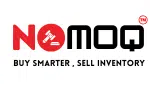As a procurement professional, managing metal suppliers is an important aspect of your job. Your ability to effectively manage suppliers can have a significant impact on the success of your procurement strategy. In this blog, we will discuss some best practices for managing metal suppliers that can help you optimize your procurement strategy and ensure the success of your operations.
- Establish Clear Communication Channels
Clear communication is essential when it comes to managing metal suppliers. It is important to establish open communication channels with your suppliers from the outset. This includes discussing expectations, setting clear goals, and ensuring that both parties understand each other’s needs and capabilities. By establishing a clear and open dialogue, you can build a stronger relationship with your suppliers and avoid misunderstandings or miscommunications.
- Monitor Supplier Performance
It’s important to regularly monitor the performance of your metal suppliers to ensure that they are meeting your requirements. This includes evaluating their delivery times, quality of product, and pricing. By tracking supplier performance, you can identify any potential issues before they become major problems and work with your suppliers to improve their performance.
- Build Strong Relationships
Building strong relationships with your metal suppliers is key to managing them effectively. This includes developing a strong rapport, understanding their business and industry, and working collaboratively to identify opportunities for improvement. By building strong relationships with your suppliers, you can ensure that you have a reliable and responsive partner in your procurement strategy.
- Use Technology to Streamline Processes
Technology can be a powerful tool when it comes to managing metal suppliers. From automated procurement processes to inventory tracking, technology can help you streamline your operations and improve efficiency. By leveraging technology, you can reduce manual processes and minimize errors, freeing up time for more strategic activities.
In conclusion, managing metal suppliers is a critical component of any procurement strategy. By establishing clear communication channels, monitoring supplier performance, building strong relationships, and using technology to streamline processes, you can optimize your procurement strategy and ensure the success of your operations.

